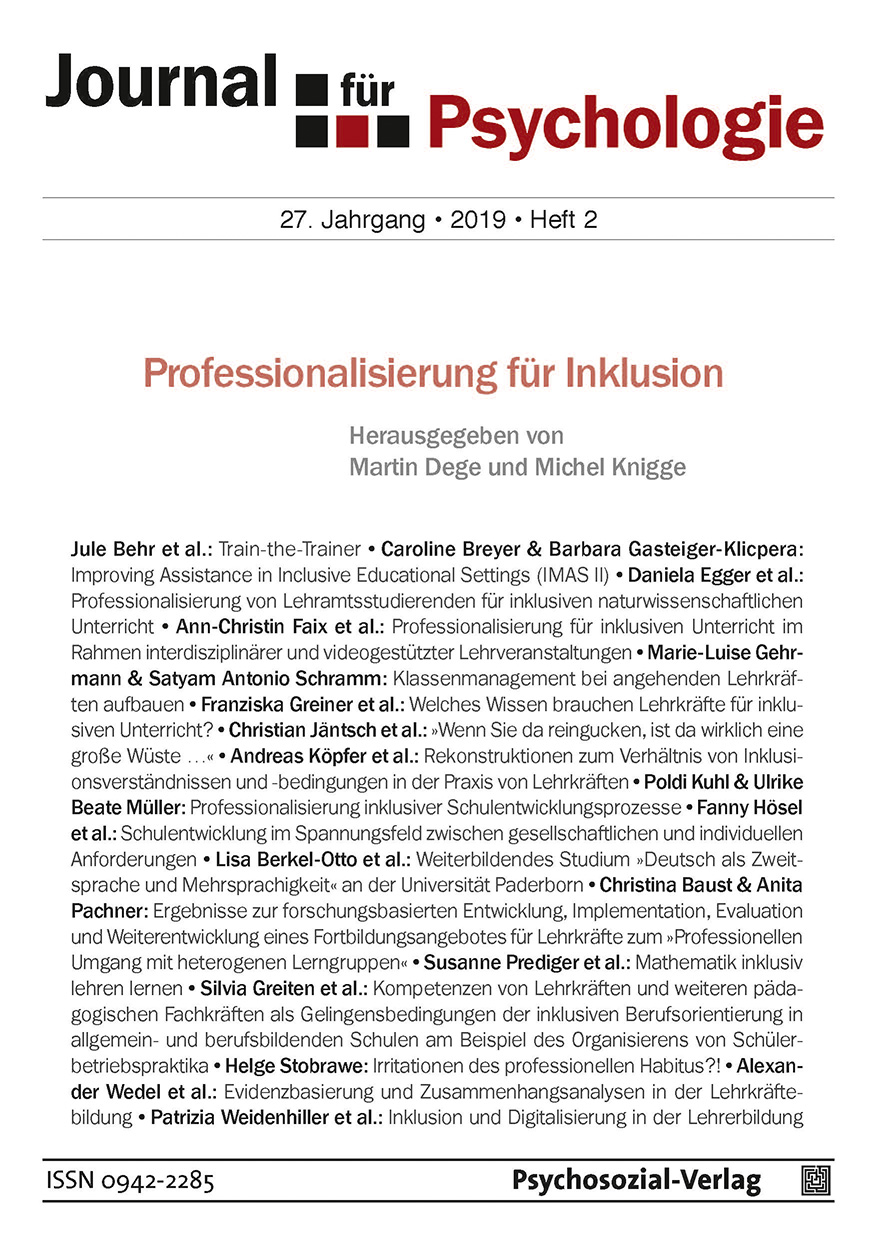Professionalization of student teachers for inclusive science teaching
DOI:
https://doi.org/10.30820/0942-2285-2019-2-50Keywords:
inclusion, inclusive science education, inquiry-based learning, teacher education, video-based competency researchAbstract
Germany ratified the UN Convention on the Rights of Persons with Disabilities (United Nations 2006, Article 24), and is therefore bound by contract to make »Education for All« possible (UNESCO 2015) in the German school system. Now there are two challenges for science education: first, the school education is divided in different subjects with different subject contents. The contents have to be prepared inclusively and subject-related. Second, the complexity of the subject contents rises noticeably from primary to secondary school, so it gets more difficult to regard all needs of a heterogeneous group of students adequately (Musenberg and Riegert 2015, 5). Therefore, a professionalization of teacher students should target these challenges to prepare them effectively for their working field. How the implementation of teacher students’ professionalization can be orchestrated is shown exemplary by a project seminar designed for inclusive science teaching. Research and teaching is united through the »Nawi-In«-project – funded by the Federal Ministry of Education and Research – by investigating the students’ development of competencies. This development is monitored by video-based competency research (Riegel 2013).Downloads
Published
2020-05-01
How to Cite
Egger, Daniela, Sarah Brauns, Katja Sellin, Matthias Barth, and Simone Abels. 2020. “Professionalization of Student Teachers for Inclusive Science Teaching”. Journal für Psychologie 27 (2):50-70. https://doi.org/10.30820/0942-2285-2019-2-50.
Issue
Section
Schwerpunkt
License
Copyright (c) 2020 Journal für Psychologie

This work is licensed under a Creative Commons Attribution-NonCommercial-NoDerivatives 4.0 International License.
This license allows private use and unmodified distribution, but prohibits editing and commercial use (further information can be found at: https://creativecommons.org/licenses/by-nc-nd/4.0/).
The terms of the Creative Commons licence only apply to the original material. The reuse of material from other sources (marked with a reference) such as charts, illustrations, photos and text extracts may require further permission for use from the respective copyrights holder.



